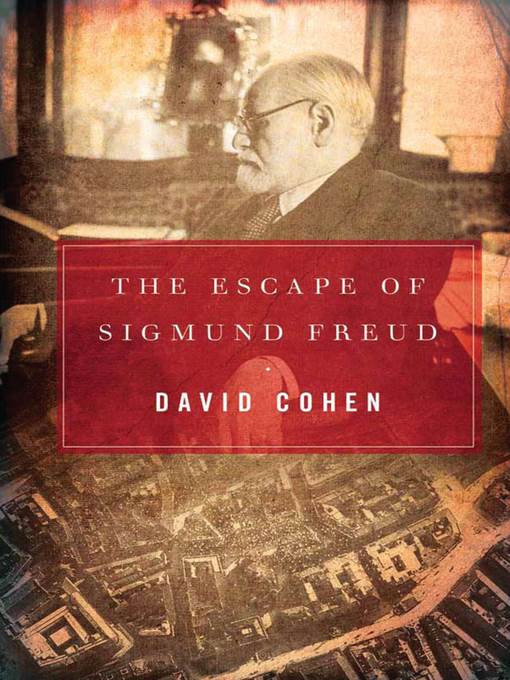
The Escape of Sigmund Freud
کتاب های مرتبط
- اطلاعات
- نقد و بررسی
- دیدگاه کاربران
نقد و بررسی

February 20, 2012
Only a small part of this book is about 82-year-old Sigmund Freud’s escape from Vienna to London in June 1938, but that part is fascinating. Psychologist, filmmaker, and writer Cohen (Psychologists on Psychology) relates how Freud was able to leave the city with the extensive help of an Austrian Nazi official, Anton Sauerwald, who saved Freud’s son Martin from almost certain arrest and supervised the packing of 1,000 pieces of art from Freud’s residence. Aside from this story, Cohen briefly offers a biography of Freud and his extended family, including such little-known material as the involvement of his uncle and two half-brothers in a criminal conspiracy. The author also provides useful summaries of Freud’s last three books, including Moses and Monotheism. Cohen’s frequent digressions are amusing, as when he quotes E.B. White’s parodies of Freud, and sometimes a bit distasteful, as when he notes, “Freud kept two urine bottles by his desk and was clearly in the habit of peeing into them.” Occasionally, too, Cohen lapses into clichés (“Freud and Jung were... like yin and yang, oil and vinegar, salt and pepper”). Generally, however, Cohen’s book is informative, entertaining, and sometimes gripping. Agent: Sonia Land, Sheil Land Associates.

March 15, 2012
An enjoyable small story about an incident in Sigmund Freud's late life. Freud was nearing the end of his life in 1938 when he finally agreed to leave Vienna as it succumbed to Nazi domination. Freud the atheist looked at himself as only a tribal Jew. He didn't practice his faith and didn't wish to accept the danger of remaining in Austria, but he didn't wear blinders. To offset charges that psychoanalysis was a Jewish sect, Freud chose Ernest Jones, a Welsh Methodist, as his biographer. Cohen's (Psychologists on Psychology, 1985) opinion of that biography could not be clearer as he chips away at Jones' writing; he notes that Jones left out salient facts. Cohen is not a biographer but a psychologist, and this book is much more an analysis of Freud, his daughter and other relevant characters. The author illuminates the reasons for his facts carefully and clearly. Freud's distinction as the father of psychoanalysis ensured aid from many sources to leave Vienna. Diplomats in Vienna, France, America and England, his biographer and his patient, Marie Bonaparte, all worked tirelessly to facilitate the departure of Freud's party. Possibly the most influential was Anton Sauerwald, who was appointed by the Nazis to control the family's assets and their psychoanalytic publishing house. It was he who not only cleared the bureaucratic paperwork necessary for the Freud party, but also took responsibility to ship over 1,000 items to him in England. An illuminating look at the end of the life of a giant of psychology.
COPYRIGHT(2012) Kirkus Reviews, ALL RIGHTS RESERVED.

June 1, 2012
Freud's 1938 flight from Vienna to London--psychologist Cohen's ostensible topic--was enabled by Anton Sauerwald, an underknown Nazi chemist apparently motivated by the sympathy of one educated man for another. While probably bribed, Sauerwald also lent or gave Freud money, assumed risks, and died in relative misery shortly after World War II. But Freud's "escape" occupies only the book's second half. Cohen more significantly focuses on Freud's evolving understanding of his Jewishness, Nazism's ambivalent intellectualism, and tensions among psychoanalysts over the daunting influence of the hands-on father of the discipline. Cohen's greatest contributions here are in highlighting aspects of Freud's personal life mostly neglected in Peter Gay's classic 1988 biography, e.g., careless spending, charging fees affordable solely by the super-rich, and depending on wealthy patrons. A nonacademic, Cohen calls out Freud disciple Ernest Jones for his ambition, caution, and inconstancy and is scathing toward Freud acolyte, then rival Carl Jung's selfishness and Nazi complicity. VERDICT Clearly aimed at scholars, Cohen's scrupulous research will interest historians of interwar intellectual life and Freud's later years. An appendix guides readers to who-is-who in the extended family, for Freud was obsessively loyal and devoted to a set of confusingly numerous relations.--Scott Silverman, Richmond, IN
Copyright 2012 Library Journal, LLC Used with permission.

























دیدگاه کاربران